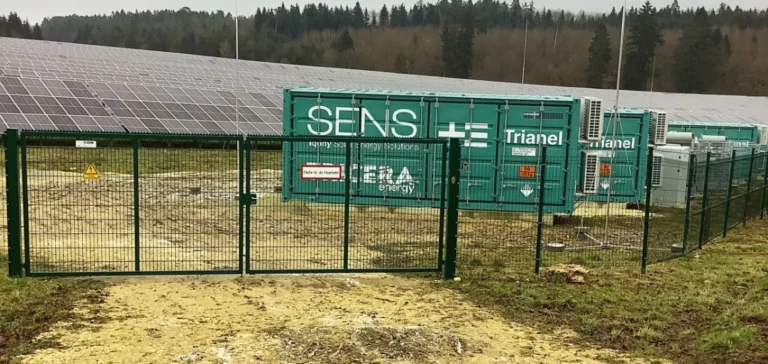Trianel GmbH (Trianel), a municipal utility cooperative based in Aachen, plans to erect in Waltrop, North Rhine-Westphalia, a battery park with an initial capacity of 900 megawatts (MW) and 1 800 megawatt-hours (MWh). The project, a joint investment with BKW AG (BKW) and Luxcara GmbH (Luxcara), already ranks among the most ambitious in Germany. Located on an industrial brownfield once earmarked for a coal-fired power plant in Lünen, the site aims to convert unused land into a grid-flexibility asset. The partners state that the capacity will be fully dispatchable for balancing services and wholesale-market arbitrage.
Capacity and configuration
The first tranche will comprise three Battery Energy Storage Systems (BESS), each rated at 300 MW. Together they will deliver 1 800 MWh, equivalent to two hours of full discharge at nominal power. The containers will use lithium-iron-phosphate (LFP) technology, valued for thermal durability and high cycle life. Trianel has pre-qualified suppliers to ensure compliance with European fire-safety standards.
Beyond this first phase, an additional 600 MW is under design, bringing the site’s potential to 1.5 gigawatts (GW). Expansion will depend on how quickly regional grids absorb new renewable generation and on price signals in reserve markets. The land, already connected to the high-voltage network through the former coal infrastructure, allows modules to be added without heavy interconnection works. This modularity lowers marginal costs and shortens commissioning schedules.
Role of the partners
Trianel will manage project delivery and asset optimisation on spot and intraday markets via its trading subsidiary. Luxcara, which has secured 520 MW of capacity for institutional funds, will structure long-term financing through revenue-sharing agreements. BKW will leverage engineering expertise for design, construction and maintenance, while marketing capacity through its Bern trading desk. Other German municipal utilities are negotiating capital entry during the year to share operating risk.
Construction is scheduled to start in 2026, pending final environmental permits. The partners target commercial operation in the first quarter of 2028, enabling participation in the same year’s primary-reserve auctions. LFP containers will be delivered pre-cabled, cutting installation time to eight weeks per 100 MW batch. Grid connection will use an existing 380-kilovolt busbar nearby.
Market context
According to Clean Energy Wire, large battery systems connected in Germany totalled 2.3 GWh at end-2024, with a five-fold increase projected within two years owing to a project queue of 226 GW. Grid operators estimate hourly flexibility needs will triple by 2030 because of higher wind and solar volatility. Under this outlook, BESS revenues could come equally from primary reserve, intraday arbitrage and regional capacity contracts. Waltrop’s promoters therefore anticipate a payback period of under twelve years, based on an average spread of €30/MWh.






















